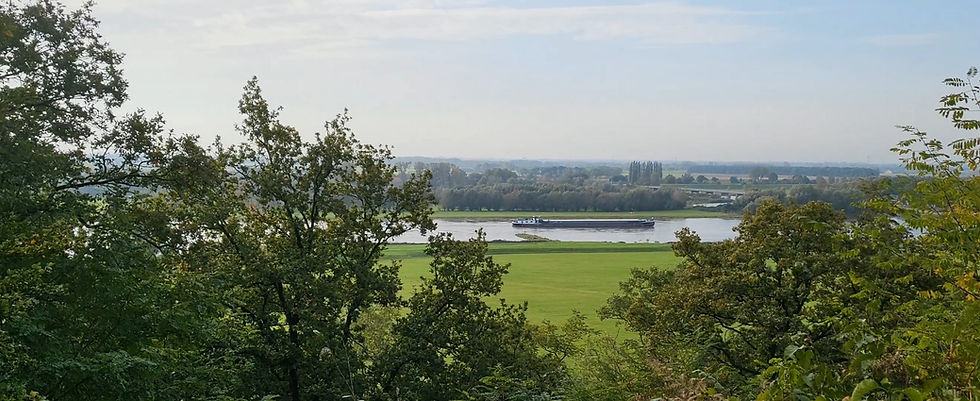Updates on Shipping, MPA & Litter Cases at WCSG 2024
- pavel874
- Oct 24, 2024
- 3 min read

A panting runner emerged from the forest, on a dirt trail that took him to the open space overlooking the Nederrijn river. The runner was not alone to enjoy this panoramic view. Several observers already stood there, with cameras in their hands, ready to take pictures of the barge sailing slowly at a distance. Before disappearing into the lush greenery the trail was leading to, the runner skirted a busy terrace where people were savouring not just lunch but also the weather, which was unusually warm (19°C) for mid-October. All in all, a perfect backdrop to this year’s WCSG Conference organised by Wageningen University.
PERMAGOV was there to present
A poster featuring the Multi-Layered Collaborative Marine Governance Model
Case study work on maritime shipping and ports in the Adriatic Sea
Case study work on Italian MPA management in the Adriatic Sea
Case study work on plastic pollution from agriculture in the Mediterranean Sea
Multi-Layered Collaborative Marine Governance Model
MLCMGM shows how existing marine governance arrangements can evolve to better support the implementation of the European Green Deal. Governance arrangements represent the way in which actors, discourses, resources and rules shape the management of marine activities and resources. These arrangements can change and innovate over time as a result of actors overcoming institutional barriers, and through collaboration dynamics. This process is underpinned by governance capabilities of actors and facilitated by e-governance. The goal of the model is to streamline transition from ‘status quo’ characterised by a mismatch between governance arrangements and the EGD, towards a ‘new development’ where governance arrangements are optimised to meet EGD objectives and targets. MLCMGM is being applied to nine PERMAGOV case studies. Updates from three of them were presented at the conference.
EGD as a driver of collaboration between ports and shipping companies
The data collected so far for the Adriatic Sea suggests that EGD is prompting an increased capacity for joint action between ports and shipping companies. Furthermore, it suggests that novel dynamics of joint action are emerging with respect to the decarbonisation agenda. An example would be the supply of alternative fuels via new port infrastructure. Crucially, these two sectors, which are typically governed by separate arrangements, are transforming so as to respond to policy changes that require more coordination than ever before.
Challenges and opportunities to managing Torre Guaceto MPA
The case study recently completed a scoping visit to the Torre Guaceto MPA located on the Adriatic coast near Puglia, Italy. The aim was to learn about existing processes and challenges to co-management. The results show that MPA implementation is held back by institutional fragmentation and power imbalances where the local MPA management consortium is given tasks but without sufficient powers to enforce regulations. In terms of the co-management structure, fishers are not formally represented, but trust building among stakeholders has become crucial in enhancing co-management process. The MPA has become part of the socioecological system of the area where the culture and livelihood of fishers are protected, hence the community does not oppose the MPA. Also, showing the benefits of conservation (increased catch, payouts, etc.) are crucial in ensuring the effective co-management of the MPA.
Agriplastics as a source of marine pollution in the Mar Menor
Mar Menor is a coastal area near Murcia, Spain, known for its fairly shallow lagoon (no more than 7 meters in depth). The preliminary results show that there appears to be strong institutional cooperation between marine protection and waste management in line with circular economy goals and the recognition on behalf of waste management of waste as a key source of land-based pollution. At the same time, there appears to be some institutional fragmentation across the agricultural sector, marine protection, and waste management, especially at the national level. Planned data collection of primary evidence will show the extent to which this is the case, and how the three sectors can cooperate better to achieve zero pollution goals in the Mar Menor.















Comments